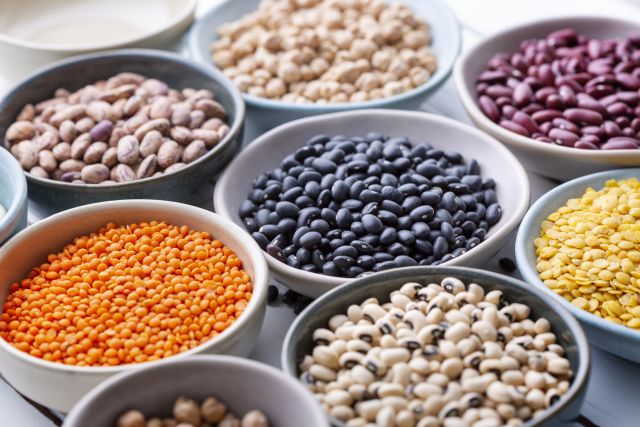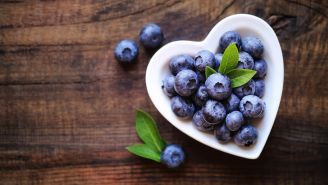Updated on January 4, 2024.
Are you looking for a food that will satisfy your hunger, keep you full throughout the day, and boost your health? Beans, peas and lentils, all members of the legume family, are loaded with fiber and protein and may even add years to your life.
One seven-year study found that for every additional 1/3 cup of beans older adults ate each day, their risk of dying fell by 7 to 8 percent. According to Blue Zones’ Power 9 principles, a typical centenarian (a person who lives to be at least 100 years old) living in a Blue Zone, eats meat, typically pork, only five times each month. The cornerstone of these people’s diet? You guessed it: legumes.
A diet free of legumes may have adverse effects on health. A bean-free diet may increase risk of metabolic syndrome, which is a collection of risk factors, like high blood pressure and high blood sugar. Additionally, one study suggests that women who don’t consume beans have a higher mortality rate than those who do. Eating legumes is beneficial in the short-term, too. Consuming beans and other legumes each day lowers your risk of certain conditions, halts the development of certain diseases, and promotes overall health.
Why you should load up on legumes
Need more reasons to eat more beans? Feast on these:
They reduce cholesterol levels
Beans are loaded with fiber—about 60 percent of the daily recommended value in one cup of black beans. Black beans also contain soluble fiber, which reduces your body’s absorption of cholesterol and can decrease high cholesterol levels, a risk factor for heart disease. Consuming between 5 and 10 grams of soluble fiber per day can lower cholesterol levels, and a cup of black beans contains more than 7 grams. Opt for dried beans and soak and cook them yourself, or rinse canned beans to remove excess salt. Too much sodium in your diet can increase blood pressure, another heart disease risk factor.
They lower diabetes risk
Legumes have a low glycemic load, which is beneficial for many reasons, including regulating blood sugar levels. Glycemic load describes how much a food will affect blood sugar levels. Aim to consume a total daily glycemic load less than 100; a half cup of kidney beans has a load of six. Legumes also prevent blood sugar spikes, so they provide your body with steady energy.
They fight diseases like cancer
Legumes are loaded with fiber, which may help prevent some digestive cancers. Beans, especially black beans, contain nutrients, like antioxidants and flavonoids, that help fight disease.
They help control weight
Legumes are low in calories. A half-cup of garbanzo beans contains only 135 calories and no saturated fat, plus fiber and protein, which keep you fuller for longer. Fiber also promotes regularity.
Sneak legumes into every meal
The weekly recommended intake of beans for adult men and women is between two and three cups, but Americans seldom reach these goals. Incorporating legumes into your diet can be simple and tasty, too. Here's how to get more beans and legumes in your daily diet:
- Hide black beans in brownies by swapping flour for pureed black beans.
- Garbanzo beans, also called chickpeas, can be blended into a hummus spread and added to a sandwich or used as a dip for veggies.
- Swap half a cup of cooked lentils for your typical protein in your lunchtime salad. They contain only 115 calories and 9 grams of protein and 8 grams of fiber.
- Pea soup makes a hearty meal. You can also puree a cup of peas into your next bowl of pesto.
- Fold plump kidney beans into an omelet, instead of bacon or ham, to start your morning with a boost of energy and a punch of fiber, protein, and iron.
Include some of these swaps in your meals and check your progress by taking the RealAge Test. This test measures how your lifestyle and family history affect your longevity. If your RealAge is lower than your biological age, you’re on track to live a healthier life.







